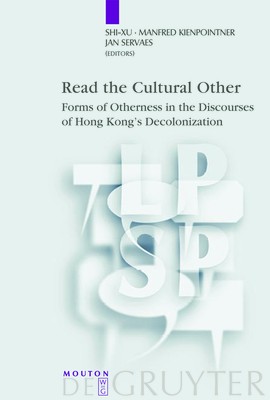
- We will send in 10–14 business days.
- Publisher: Walter de Gruyter
- Year: 2005
- Pages: 252
- ISBN-10: 311018267X
- ISBN-13: 9783110182675
- Format: 15.6 x 23.4 x 1.9 cm, hardcover
- Language: English
- SAVE -10% with code: EXTRA
Read the Cultural Other (e-book) (used book) | bookbook.eu
Reviews
Description
Read the Cultural Other contains studies on non-Western discourse. It has two principal aims. Firstly, it argues that the study of non-Western, non-White, and Third-World discourses should become a legitimate, necessary, and routine part of international discourse scholarship. Hitherto, non-Western, non-White, and Third-Word discourses have been relegated and marginalized to a 'local', 'particular', or 'other' place in (or, one might argue, outside) the mainstream. To reclaim their place, the book deconstructs the rhetoric of universalism and the continued preoccupation with Western discourse in the profession, and stresses the cultural nature of discourse, both ordinary and disciplinary, as it outlines a culturally pluralist vision.
Secondly, in order to take the multicultural view seriously, it explores the complexity, diversity, and forms of otherness of non-Western discourse by examining the case of China and Hong Kong's discourses of the decolonization of the latter. Far too often, non-Western discourse has been stereotyped as externally discrete, internally homogeneous, and formally containable within a 'universal', 'general', or 'integrated' model. The present work focuses on China and Hong Kong's discourses, which have been marginalized by their Western counterparts. Through culturally eclectic linguistic analysis and local cultural analysis, it identifies and highlights the specific ways of speaking of China and Hong Kong - their concepts, concerns, aspirations, resistance, verbal strategies, etc. - with respect to similar or different issues.
The culturally pluralist view and analytical practice proffered here call for a radical cultural change in international scholarship on language, communication, and discourse.
EXTRA 10 % discount with code: EXTRA
The promotion ends in 10d.13:18:11
The discount code is valid when purchasing from 10 €. Discounts do not stack.
- Publisher: Walter de Gruyter
- Year: 2005
- Pages: 252
- ISBN-10: 311018267X
- ISBN-13: 9783110182675
- Format: 15.6 x 23.4 x 1.9 cm, hardcover
- Language: English English
Read the Cultural Other contains studies on non-Western discourse. It has two principal aims. Firstly, it argues that the study of non-Western, non-White, and Third-World discourses should become a legitimate, necessary, and routine part of international discourse scholarship. Hitherto, non-Western, non-White, and Third-Word discourses have been relegated and marginalized to a 'local', 'particular', or 'other' place in (or, one might argue, outside) the mainstream. To reclaim their place, the book deconstructs the rhetoric of universalism and the continued preoccupation with Western discourse in the profession, and stresses the cultural nature of discourse, both ordinary and disciplinary, as it outlines a culturally pluralist vision.
Secondly, in order to take the multicultural view seriously, it explores the complexity, diversity, and forms of otherness of non-Western discourse by examining the case of China and Hong Kong's discourses of the decolonization of the latter. Far too often, non-Western discourse has been stereotyped as externally discrete, internally homogeneous, and formally containable within a 'universal', 'general', or 'integrated' model. The present work focuses on China and Hong Kong's discourses, which have been marginalized by their Western counterparts. Through culturally eclectic linguistic analysis and local cultural analysis, it identifies and highlights the specific ways of speaking of China and Hong Kong - their concepts, concerns, aspirations, resistance, verbal strategies, etc. - with respect to similar or different issues.
The culturally pluralist view and analytical practice proffered here call for a radical cultural change in international scholarship on language, communication, and discourse.


Reviews